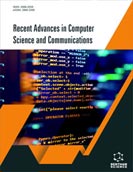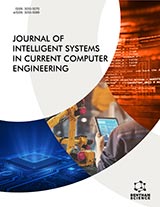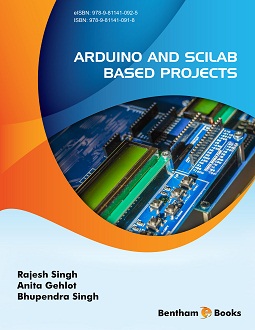Preface
Page: i-i (1)
Author: Rajesh Singh, Anita Gehlot, Bhavesh Dharmani and Kamal Kumar
DOI: 10.2174/9789815051452122010001
Blockchain for IoT Security and Privacy: Challenges, Application Areas and Implementation Issues
Page: 1-17 (17)
Author: Chaitali Choudhary*, Inder Singh* and Mohammad Shafiq
DOI: 10.2174/9789815051452122010003
PDF Price: $15
Abstract
Blockchain and IoT are the most exciting technologies in the current world,
combining these two together may resolve a lot of issues. In the current scenario, we
are using IoT devices in nearly everything. By the end of this era, we can presume that
all of our day-to-day use devices will be smart. But with this various issue may rise like
safety, security, and performance concerns of smart devices. To resolve these issues,
blockchain technology has emerged as a very powerful tool. In this chapter, the basics
of blockchain along with its architecture and algorithms involved are discussed. IoT
challenges and related literature are also discussed along with blockchain as an
efficient technology to resolve these issues. The chapter also includes the challenges in
using blockchain in IoT devices.
Distributed Ledger Technology and its Potential Applications - Financial Sector
Page: 18-46 (29)
Author: Sachin Sharma* and Kamal Kumar
DOI: 10.2174/9789815051452122010004
PDF Price: $15
Abstract
The concept of blockchain has shown tremendous potential and growth in
the last decade. The terms such as blockchain and digital ledger technology are used
interchangeably. Many research efforts have been madto explain and harness the
benefits of digital ledger technology for the financial sector. Digital currency or
cryptocurrency is a technological currency based on the block chain concept.
Implementation of Blockchain Technology for Big Data
Page: 47-73 (27)
Author: Yasir Afaq, Shaik Vaseem Akram*, Rajesh Singh and Mohammad Shafiq
DOI: 10.2174/9789815051452122010005
PDF Price: $15
Abstract
The focus of this chapter is to provide brief knowledge about the concept and advantages of integrating Big Data and blockchain technology. As we are focusing on the blockchain and Big Data, it is suitable to introduce Big Data before exploring its interactions with blockchain. The blockchain technology is introduced and then the interaction between blockchain technology and Big Data is focused, in order to gain a clear understanding of how blockchain technology is used for Big Data. Thereafter, the different applications of blockchain and Big Data are explored.
Hydroponics Monitoring System Based on IoT and Blockchain
Page: 74-86 (13)
Author: Harpreet Singh Bedi*, Raghav Gupta, Manoj Sindhwani and Kamal Kumar Sharma
DOI: 10.2174/9789815051452122010006
PDF Price: $15
Abstract
Since blockchain is the central technology of bitcoin, block chain has gained
a lot of attention in recent years. Its applications are expanding in a variety of fields,
including Internet of Things (IoT) defense, banking, industries, and medical centre.
Furthermore, IoT has grown in popularity because of its widespread usage in smart
homes and urban developments around the world. This paper presents the design of an
automated system for a greenhouse focusing mainly on Hydroponics. Along with the
design, the purpose of this study is monitoring, control, and visualization of the data.
This project addresses some of the issues in traditional farming. Issues like incapability
of agriculture due to small and fragmented land holdings, risk in using manures and
pesticides, and lack of mechanization. The segments of this project include the main
module (referred to as AGMS), the cloud, and the end user. The data visualization is
done through a website that will acquire it from a Wi-Fi module through APIs. The
study also includes social media alerts to platforms like Twitter and mail.
Recent Trends in IoT Healthcare-based Blockchain Solutions
Page: 87-109 (23)
Author: Himanshu Sharma, Hardik Chaurasia, Arpit Jain* and Nazir Ahmed
DOI: 10.2174/9789815051452122010007
PDF Price: $15
Abstract
This review revolves around the idea of inculcating and amalgamating all
the possible forte of healthcare that can be governed and handled by Blockchain
Technology (BCT). Relating back to all the archaic systems involved in the healthcare
sector, the entire process was quite slow and many a time leads to a significant amount
of delay in any process, be it report of the patient, tracking data from the smart watch,
ruling out appointment from a doctor, medicine prescription and many more. BCT in
fusion with the Internet of Things (IoT), leads to generating a completely revolutionary
and robust system that expands its range from very minute detail to a completely new
horizon. As predicted by 2022, more than 18 billion devices will be available across the
world; thus, managing this data that is related to healthcare, devising BCT for same can
yield some exponential results in advancement in health care sector. This entire
healthcare data is quite vulnerable to all the cyber-attacks and all the collected valuable
information may be at a huge risk; hence by deploying BCT, security can be greatly
increased. BCT is nothing but an immutable time stamp series of records, just like an
array working; when even one of the blocks is initialized with any value of
information, that piece of information will remain there forever. This review attempts
to group together all such various fields that can be brought under a single umbrella
covering the range of fields that can be governed by BCT in accordance with IoT for
the development of health care sector.
Blockchain Technology-based System in Vehicular Ad-hoc Network
Page: 110-118 (9)
Author: Manoj Sindhwani, Charanjeet Singh* and Rajeshwar Singh
DOI: 10.2174/9789815051452122010008
PDF Price: $15
Abstract
Among the various technologies that are constructing the pillars deep in the field of engineering, ad-hoc networks are one of the major fields of research. On the grounds of history, Mobile ad-hoc Networks (MANETs) played a prominent role in battlefield communication and other important applications, but another emerging network named as Vehicular ad-hoc Networks (VANETs) offered wireless communication led to its popular usage that resulted in the major deployment of adhoc networks. However, in VANET, secure message transmission is still a challenge, so we propose a local blockchain to disseminate the message in vehicular networks to improve the security issues. The public blockchain technique in VANET ensures trustbased secure message transmission in the Vehicular ad-hoc Network.
Subject Index
Page: 119-125 (7)
Author: Rajesh Singh, Anita Gehlot, Bhavesh Dharmani and Kamal Kumar
DOI: 10.2174/9789815051452122010009
Introduction
In the last two decades, many new fractional operators have appeared, often defined using integrals with special functions in the kernel as well as their extended or multivariable forms. Modern operators in fractional calculus have different properties which are comparable to those of classical operators. These have been intensively studied for modelling and analysing real-world phenomena. There is now a growing body of research on new methods to understand natural occurrences and tackle different problems. This book presents ten reviews of recent fractional operators split over three sections: 1- Chaotic Systems and Control (covers the Caputo fractional derivative, and a chaotic fractional-order financial system) 2- Heat Conduction (covers the Duhamel theorem for time-dependent source terms, and the Cattaneo-Hristov model for oscillatory heat transfer) 3- Computational Methods and Their Illustrative Applications (covers mathematical analysis for understanding 5 real-word phenomena: HTLV-1 infection of CD4+ T-cells, traveling waves, rumor-spreading, biochemical reactions, and the computational fluid dynamics of a non-powered floating object navigating in an approach channel) This volume is a resource for researchers in physics, biology, behavioral sciences, and mathematics who are interested in new applications of fractional calculus in the study of nonlinear phenomena.






















